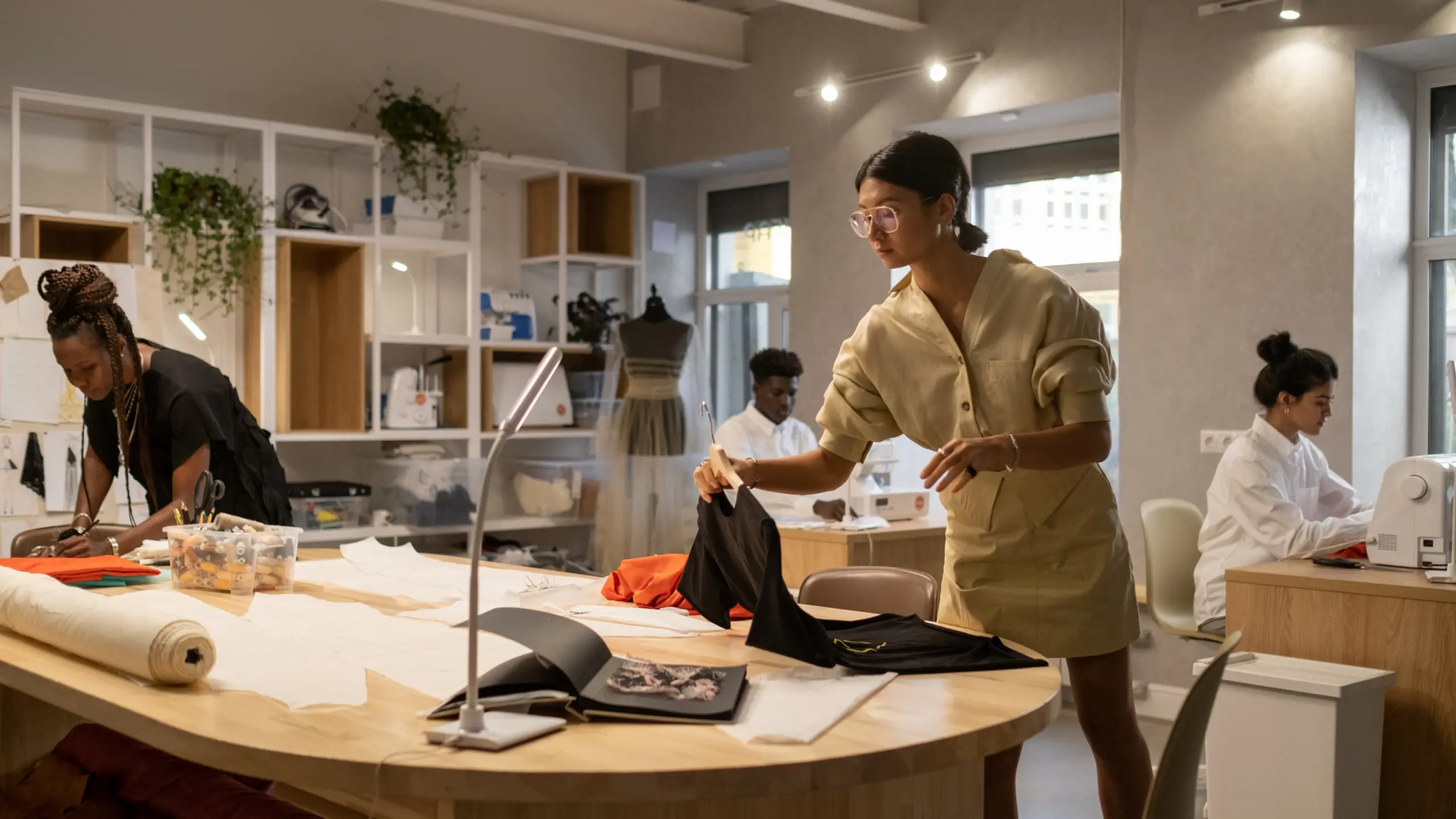Haley Huie: Building Something New
Haley Huie is something of a Renaissance woman, having successfully navigated the worlds of journalism, business, and higher education. Now, as the new director of NC State’s Entrepreneurship Clinic, she is leveraging a diverse set of skills to help a rising generation of entrepreneurs leave their mark.
Q&A with Haley Huie
When were you first bitten by the entrepreneurship bug?
I fell in love with entrepreneurship while working for a family-owned florist in my hometown of Kannapolis, North Carolina. Even though I was a high school student, I was involved in most facets of the business, including purchasing and procurement, design, and events. I realized then how much I loved building things.
As an undergraduate student at NC State, you studied journalism and communication. Where did you go from there?
I served as an editor of NC State’s school newspaper and thought journalism was the career for me. After graduation, I wrote for a family of newspapers in Virginia, which exposed me to a wide variety of topics, from business and education to government and politics. My experience inspired me to venture out and experience other industries. After relocating to the Bay Area, I worked in admissions and student advising for a culinary school before joining a proprietary school group called Heald College. It was in this corporate environment that I honed my ability to lead teams, define a market, and introduce new products and services. I also started consulting and coaching with friends and contacts who were joining or growing startups. I was fortunate enough to be mentored by people with a background in venture capital, which fueled my interest in entrepreneurship.
What was it like building NC State’s entrepreneurship living-learning community?
When I returned to NC State in 2015 to build the Albright Entrepreneur’s Village, one of NC State’s living-learning communities, the program had only been around for a year. There were 12 students involved when I arrived, and seven were about to graduate. The first major challenge I faced was scaling quickly. Fortunately, when you create craveable experiences, students respond. Over the next four years, I worked with a fantastic team to create programs and experiences that I would have wanted to be part of as an undergraduate student. We developed new classes, trips to cities like New York, Seattle, and Boston; summer programs, and everything else we could think of to help entre-curious students develop new skills and contacts. Within four years, the community ballooned to 180 students. Then, in 2019, my role expanded to cover the CREATE programs and other experiential learning programs.
What is the Entrepreneurship Clinic, and what are some of your long-term strategies for making it successful?
The Entrepreneurship Clinic is a vehicle for helping students learn entrepreneurship by full immersion in an environment of innovation. Students participate in an eight-week long project where they work with a startup, corporate, nonprofit, or government agency to achieve an organizational goal. This is the opposite of your typical internship. They dive into the deep end of strategy, marketing, sales, analytics, and other business needs alongside a skilled founder. The Clinic grew out of the Poole College of Management, and we aim to extend this model across campus so that more non-business majors can take advantage of the opportunity to learn entrepreneurial principles under the guidance of experienced mentors. Our students already take several courses, Business Opportunity Analysis and the Entrepreneurship Practicum, to supplement their learning, and we plan to create even more courses down the road. We’ve also seen ventures in our Andrews Launch Accelerator achieve major milestones and look forward to helping incubate and accelerate a number of other high-growth concepts each year. I am consistently blown away by the talent and work ethic of our Wolfpack founders.
Do you find that the entrepreneurial mindset is mostly innate or something that can be cultivated?
There are some people who uniquely get it, but I’m a firm believer that most skills and paradigms can be taught. Statistically speaking, founders are more successful the second time around.
There are some people who uniquely get it, but I’m a firm believer that most skills and paradigms can be taught. Statistically speaking, founders are more successful the second time around. That is because the fundamental components of entrepreneurship, like recognizing opportunities and thinking critically in ambiguous environments, are things you can improve upon over time.
What is one of the best pieces of advice you can give to an aspiring entrepreneur?
Fall in love with your customer, not your solution. You and your mom and your best friend may love an idea, but you need to invest significant time into understanding the needs, wants, and likes of your customers and making sure you are solving the problem they want you to solve. When courting investors, they want to know that you have gathered consumer data and tested for demand. Then, the next step is to prove traction. That is when it really gets interesting!
How do you spend your time outside of work?
You can often find me meeting with someone at a coffee shop or enjoying the food and wine scene in Raleigh. I also have a three-year-old who keeps me and my husband very busy. We love traveling, hiking, and exploring the city as a family. I love to dabble in new business concepts as well. Currently, I’m involved in a remodeling company and a eco-friendly junk removal business that diverts waste from landfills.
This post was originally published in Poole College of Management News.
- Categories:


